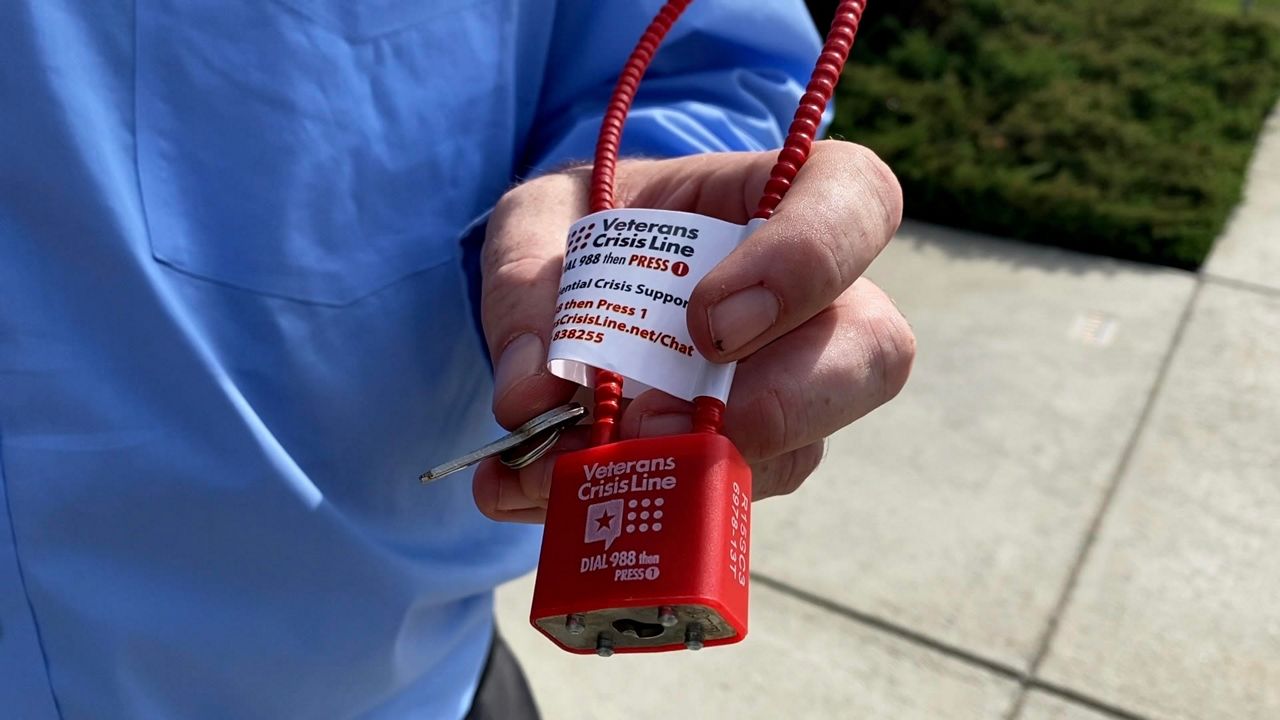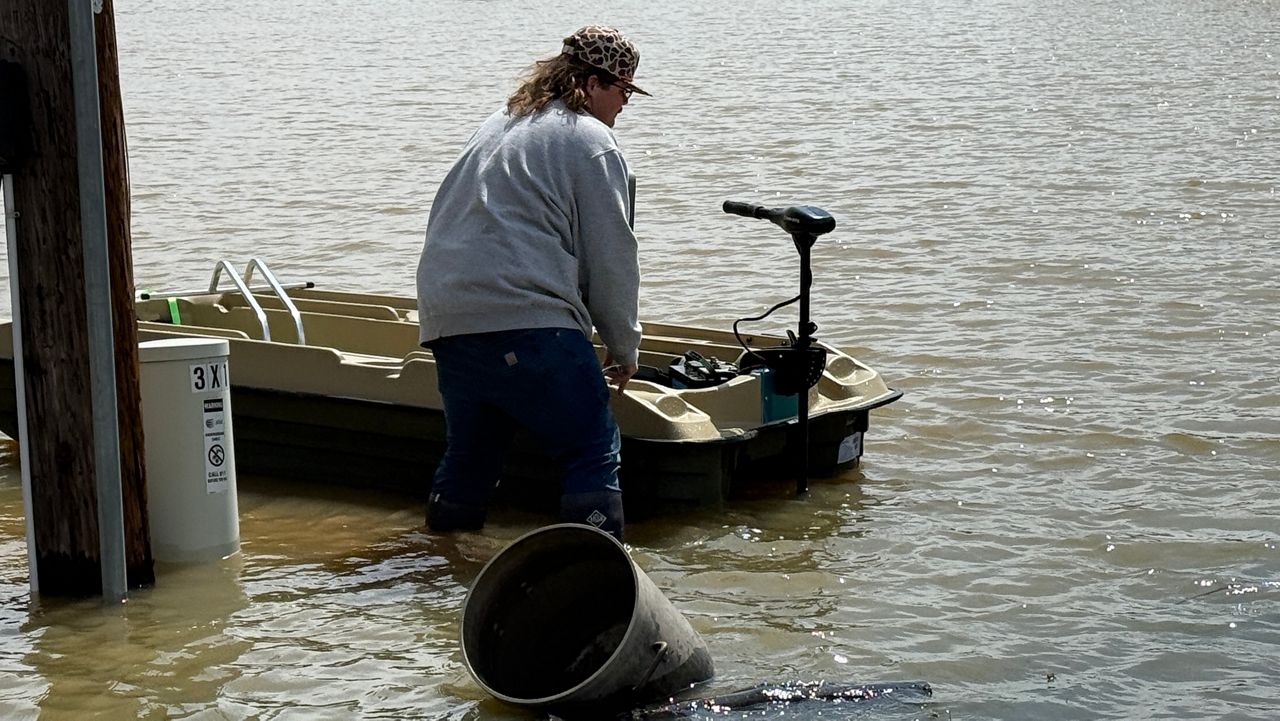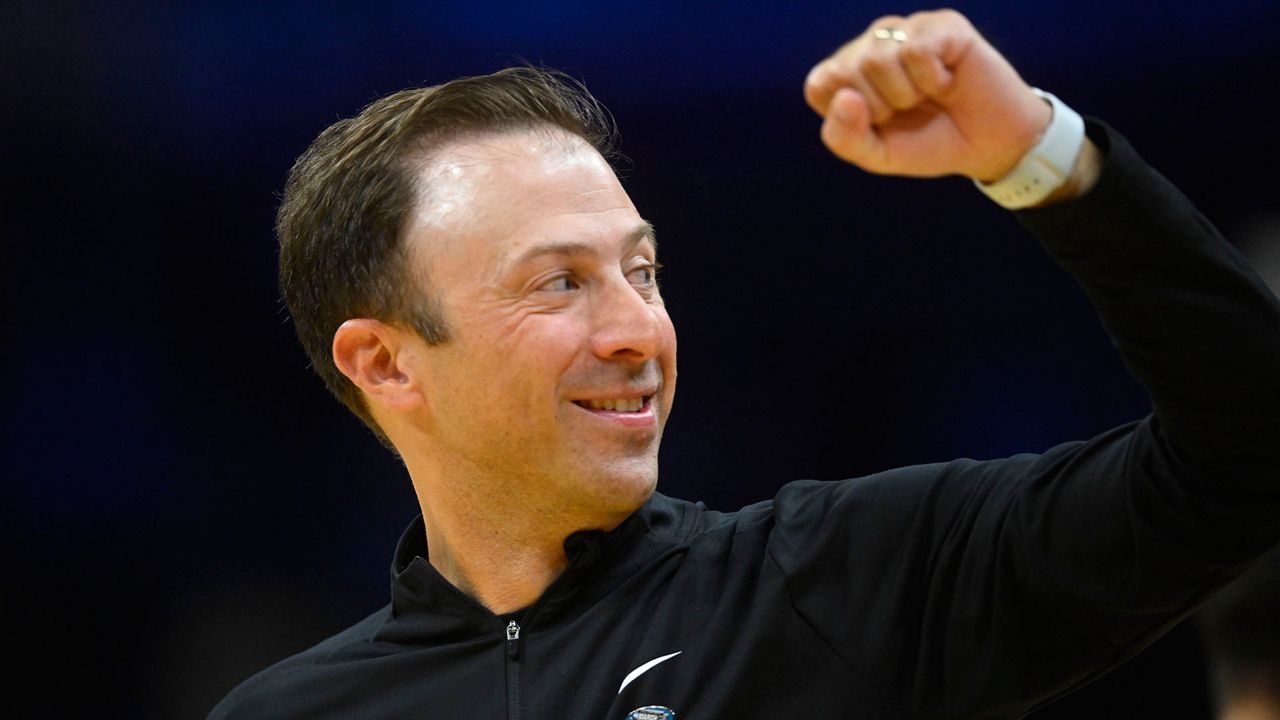FLORENCY, Ky. — A newly formed coalition is trying to tackle veteran suicide in northern Kentucky.
A veteran who’s seen a lot of loss in his own life is leading the charge. He says getting one simple device into as many people’s homes as possible could make a huge difference in the ongoing battle.
Combat veteran Joshua Jowers has seen up close what it looks like when his fellow veterans lose all hope far too many times. He knows, sadly, it’s something he’s going to continue to see.
“I have lost members from my unit due to suicide. I have had to respond to multiple suicides throughout my career in the military as well, unfortunately,” Jowers said. “There are some people who have suffered silently, and have come to the point where they felt like no one would care if they were here anymore. And we know that that’s not true. At that moment in time, that person’s in a place where they can’t see that. They don’t see that they have that support. They feel hopeless. They feel like a burden to society.”
Jowers is the Community Engagement and Partnership Coordinator for the Cincinnati Veterans Administration. One of his responsibilities is to help establish suicide prevention coalitions in areas that don’t have them. Recently, he helped do so in northern Kentucky along with NorthKey and the Northern Kentucky Health Department.
“I have family members who are veterans. And really, through my work as a mental health counselor and a substance use counselor, I’ve interacted with veterans. I’ve heard their stories. And I’m concerned with some of the unique situations they may have,” said Christy McGovern, Lead Manager of Performance Monitoring for NorthKey Community Care.
McGovern said the coalition has been meeting monthly since it formed in April 2022, providing education and advocacy.
She said veterans are one and a half times more likely to die by suicide than the general population, and an estimated 135 people are impacted through the loss of one life through suicide.
Dr. Jennifer Mooney, District Director of Health for the Northern Kentucky Health Department, said it was a good opportunity for the health department to be involved in.
“A lot of folks don’t really associate public health with having mental health in their bandwidth. But mental health and suicide prevention is very much a public health issue,” Dr. Mooney said.
Jowers said in Kentucky about 79% of all veterans who die by suicide use guns. And for those who survived a suicide attempt with a gun, quality of life is drastically impacted more so than other methods.
“With the Golden Gate Bridge, for example, the moment the person stepped off, they knew it was the wrong decision. They knew it wasn’t what they wanted to do. Unfortunately with a firearm, oftentimes by the time the trigger is pulled, it’s too late,” Jowers said.
That’s why the coalition’s latest initiative is to give out as many cable gun locks as possible.
“We know that anytime we can put time and distance between the person who is struggling with suicidal ideation and the means of how they plan to die by suicide, the better chances of that person surviving,” Jowers said. “Oftentimes it’s very impulsive. And that decision to completion time is less than an hour. While the cable lock is great, the best way of preventing someone to die by suicide with a firearm is actually to have the firearm not inside the residence.”
As Jowers knows well, though, that’s easier said than done with vets.
“It’s a struggle to have someone who has firearms and has a passion for firearms to have that firearm taken out of their home. I’m not saying we need to take the firearm away forever,” he said. “People are going to own firearms. And that’s okay. But if they’re struggling with suicidal ideation, we want to make sure we can still keep them safe.”
So far, the health department has been very successful in handing them out. Jowers said it’s too early to have data on how effective they’ve been, but he’s heard encouraging stories.
“Maybe it’s just one last chance to reach out for help. I’ve even seen some veterans attach photos of their loved ones, or whatever their purpose is in life, attaching it to the gun locks. They get to see it one more time,” he said.
Purpose can be a powerful motivator. For Jowers, it’s helping other vets remember theirs.
The VA encourages vets having suicidal thoughts to go to the emergency room to get help, or call the Veterans Crisis Line at 9-8-8 press 1.











